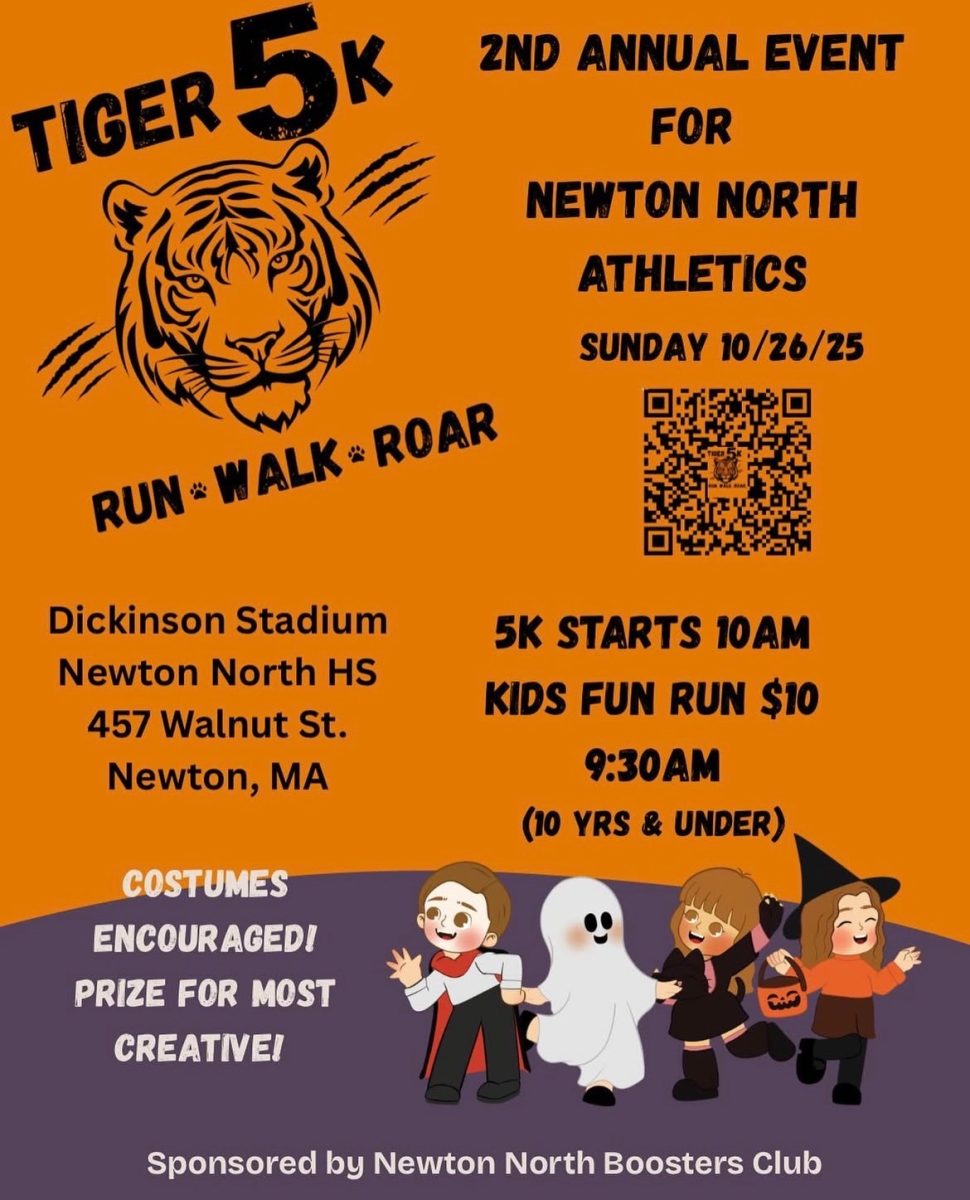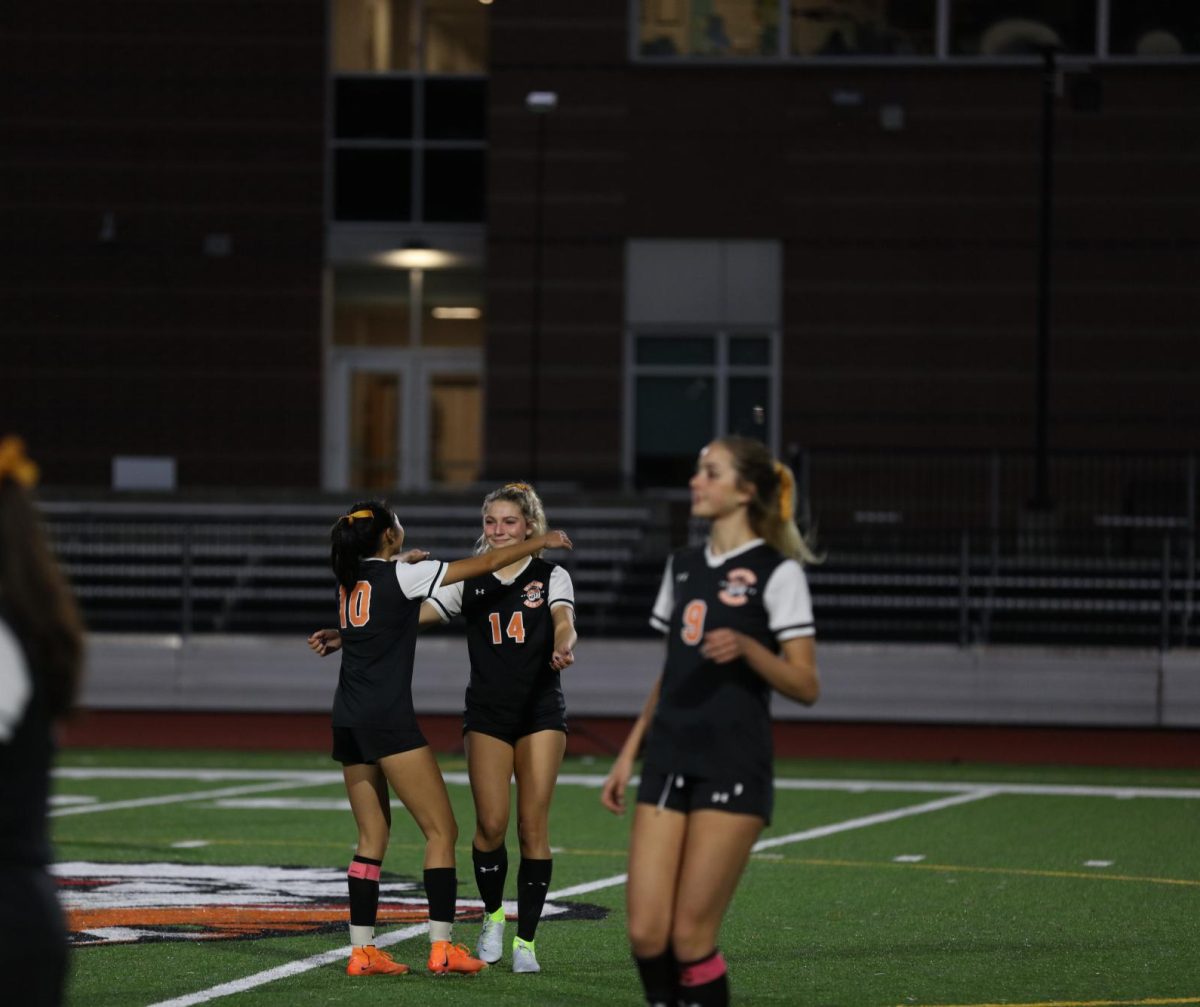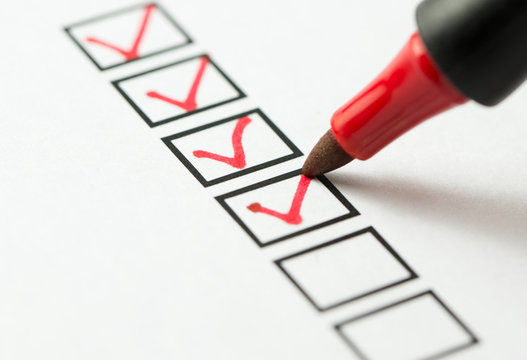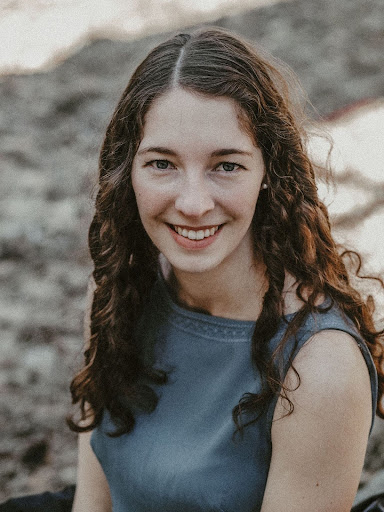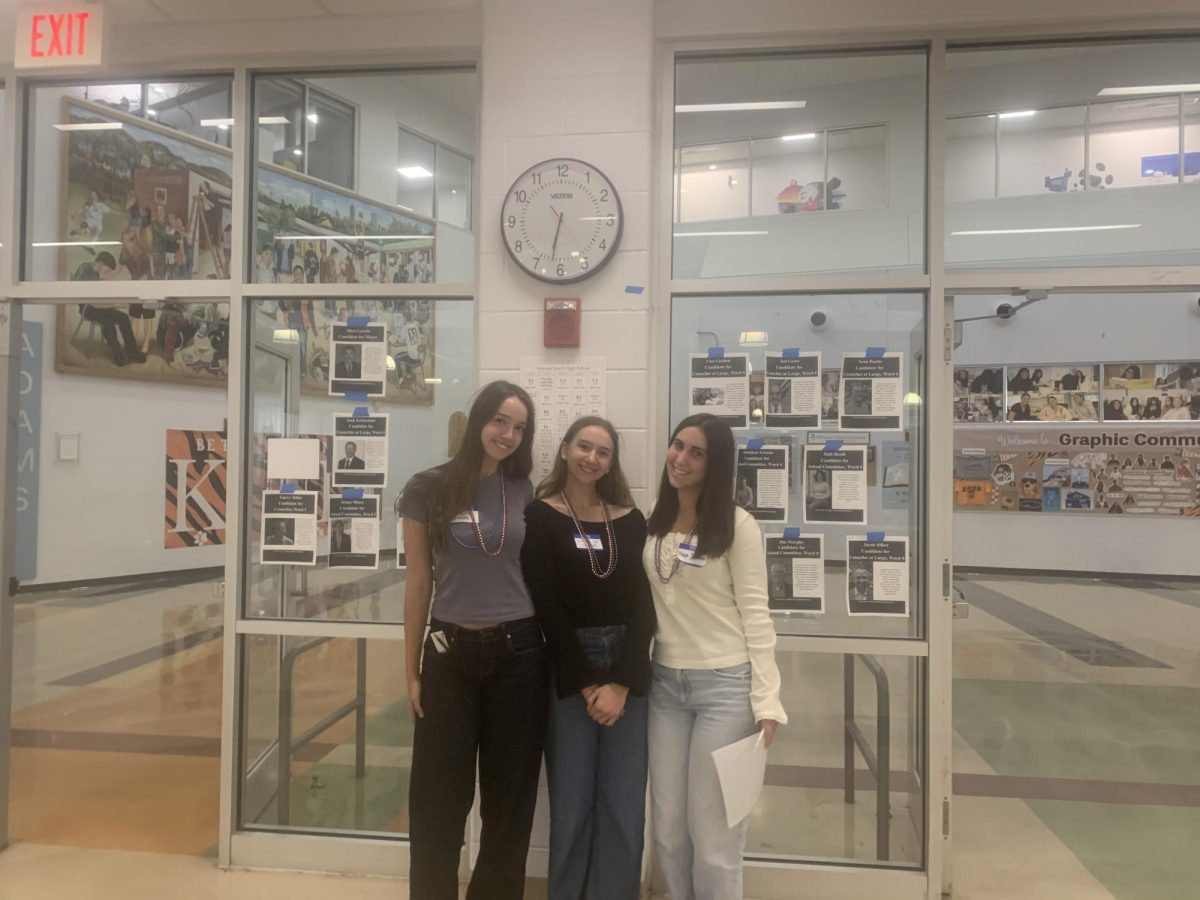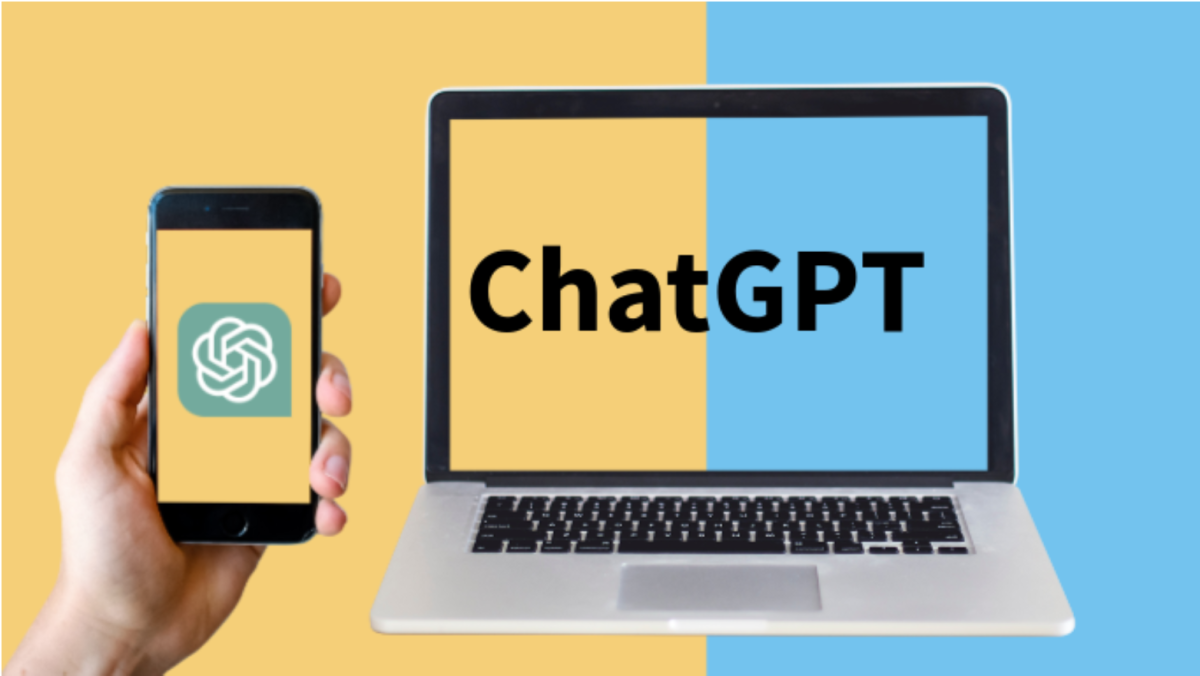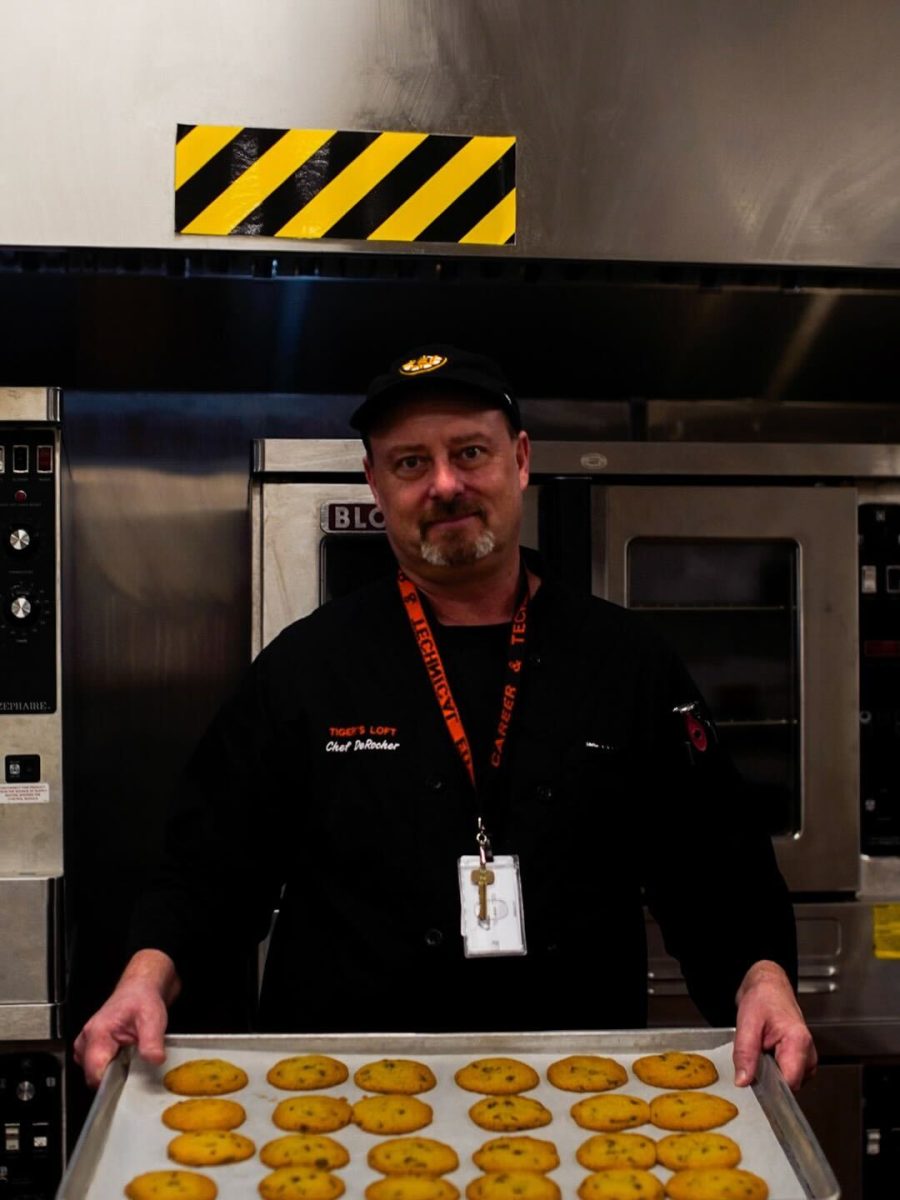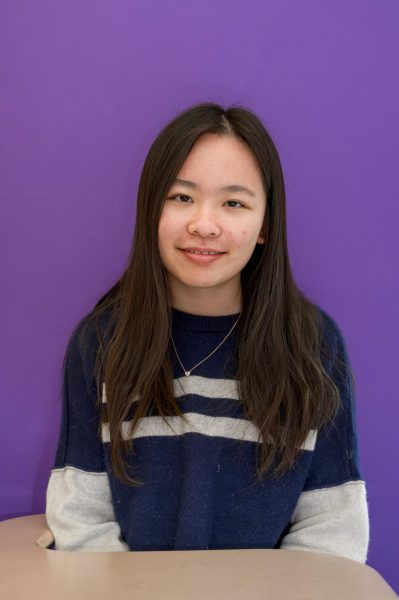Essays can now be written in seconds. Poems, songs, and playscripts can be produced after entering a few keywords. Lesson plans and articles can be generated on a whim. ChatGPT’s seemingly endless capabilities pose questions about the use of AI in education. Students and educators at North find themselves right in the middle of this hovering question mark.
The release of ChatGPT last year and the emergence of other AI platforms have prompted concerns at North about the implications of accessible AI on education and assignments. The use of ChatGPT for academic purposes is a violation of the academic policy, according to English department head Melissa Dilworth.
According to ChatGPT’s terms of use, the AI Chatbot may be used by those thirteen and older who have explicit adult permission, making it highly accessible for high school students to use for academic purposes.
“We are seeing that more and more students are using it,” said Dilworth. “It wasn’t a surprise that we have had several instances where ChatGPT has been used and detected, and subsequent conversations have happened, like we have for other forms of plagiarism.”
Concerns from teachers and district leaders prompted the creation of the Generative AI Leadership Discussion Group, a group of humanities curriculum leaders in the Newton district who meet monthly to address concerns around ChatGPT, according to Steven Rattendi, Director of Information Technology and Library Services at NPS and organizer of the group.
According to history department head Greg Drake, students’ use of ChatGPT to complete academic assignments poses a unique challenge for teachers’ ability to ensure academic honesty and detect AI usage.
“If it’s AI generated, it’s harder to know if it’s the student’s work or not,” said Drake. “What’s really frustrating from a teacher perspective is that we feel like now we’ve gone from being teachers to being detectives.”
In cases where teachers suspect the use of ChatGPT in a student’s academic work without having direct evidence, a conversation between the teacher and the student is a necessary step, said Drake.
“In terms of school policy, it’s always about the conversation. So if a teacher can prove it, the conversation is easier. If it’s just a hunch, then I think we try to talk it through and try to get to the bottom of what really happened,” said Drake.
Optimism lies in the potential benefits that ChatGPT has to offer as an educational tool, Rattendi added, given ChatGPT’s outstanding ability to “cull a lot of information together” and its effectiveness as an idea generation tool.
“There’s so many possible positives that we can’t stick with the negatives, we’ve got to look beyond that. So I think really the question in my mind is, what’s the potential for good in these systems, and how do we use them responsibly?” said Rattendi.
However, the many ways of using AI for academic assignments leaves many students wondering about the difference between what is considered using AI for assistance versus plagiarism.
“AI can create prompts or ideas that can inspire or help students to create something of their own,” said junior Rhianna Fang. “As long as students change it up and not go word for word then it shouldn’t be considered plagiarism or cheating.”
“Maybe it should be allowed to help people come up with small ideas or short phrases that might help make their writing better. But it shouldn’t be used to write whole paragraphs,” said junior Yuli Ziblat. “If you’re not writing the work yourself you’re not learning anything.”
The workload adjustment since returning from COVID-19 may play a role in the increasing student use of ChatGPT, according to Drake, who said that stress and procrastination are often triggers for academic dishonesty.
“Most times when students plagiarize or cheat, it comes from a place of panic. They’ve been spinning with this assignment and then suddenly the assignment is due tomorrow,” said Drake. “We’re still coming out of the pandemic, and as we increase our expectations, I think that for some students that’s really stressful.”
Although the school’s academic policy states that a student’s first violation of academic dishonesty results in a zero on the assignment, the teacher holds discretion for how much credit they allow students to make up, according to Drake.
“It’s about sort of doing that diagnostic, and having that open conversation,” added Dilworth. “Ultimately, teachers want students to learn, so typically we give students an opportunity to redo something. Because they want the better grade, and we want them to do the learning, so hopefully it’s a win-win and understanding that this isn’t a mark of shame. This is a way to initiate a conversation.”
Dilworth added that the efforts of school administration to discourage the use of ChatGPT “has to be a multi-prong approach,” which includes educating students about ChatGPT while enforcing an academic honesty policy.
“We as a school are always trying to get at the root of who students are as individuals, and individuals are complex. So I think just erring on one side, if we just do policy and don’t do any education, then that’s not necessarily going to be a deterrent,” said Dilworth, who added that on the other hand, having no policy in place regarding students’ use of ChatGPT is “not a good thing either.”
According to Drake, administration in the English and history departments are the most concerned about students using AI. “It’s more natural, because we tend to do more writing.”
“In my department, when it was first launched, there was a lot of panic,” said Dilworth. “It is obviously panic-inducing for a subject area and a discipline that we believe in. So I think some skepticism, some worry, some anxiety is natural.”
According to Dilworth, the school is currently at a stage between reactionary and actionary in response to the release of ChatGPT.
“This step in between is like the learning phase,” said Dilworth. “We don’t want to have a chicken-little, sky-is-falling reaction to this. But at the same time, like everything, the world evolves, and we have to evolve with it.”
According to Drake, as AI becomes more and more accessible, strategies that teachers may utilize to discourage the use of ChatGPT include focusing more on the writing process, giving more specific assignments and having students analyze other documentaries or texts.
Drake added that he thinks teachers will begin to modify their assignments to create projects that make it more challenging for students to use ChatGPT.
Administrators and the Generative AI Leadership Discussion Group have also briefly considered banning the platform altogether, but decided against it, according to Drake.
He added, “Blocking something doesn’t really stop the problem, and it drives the problem underground where you can’t see it.”
Banning ChatGPT could cause inequality amongst students who have access to the AI beyond school and those who don’t, added Dilworth.
“Anything that could further exacerbate opportunity gaps or educational gaps or access gaps is a cause of concern,” said Dilworth.
Banning ChatGPT would also eliminate the great potential it has to be used as a resource, Rattendi added.
“Students can go online and access The New York Times, so this is just another source of information. For that reason it was not going to be something we were going to block,” said Rattendi.
However, it is important for educators to have conversations with students about ChatGPT’s accuracy and how its data is generated, Rattendi added.
“It doesn’t include a lot of modern data, so it’s not accurate on current news events for example,” said Rattendi. “Since it is parsing its info from online, it can be inaccurate, so anything it produces does need to be fact checked.”
Dilworth added that the largest concern in the English department regarding ChatGPT is its ability to interfere with students’ ability to be effective communicators.
“ChatGPT could write something for you but it can’t be you, and it can’t see the world through your unique eyes,” said Dilworth. “If you take your ideas and the writing process out of the equation, what are we left with? Just something written on a piece of paper that is void of meaning.”
Despite the seemingly endless capabilities of ChatGPT and other artificial intelligence, AI will never be able to fully replicate humanity, according to Drake.
“Over and over again we learn that tech can’t replace human emotions and human connection. And we’re called the humanities for a reason,” added Drake. “Really what high schoolers need is to be together and exchange ideas and be mentored by adults and other students, and AI’s never going to replace that.”
This story was also featured in our First Day of School Special, which was released Tuesday, Sep. 5.



